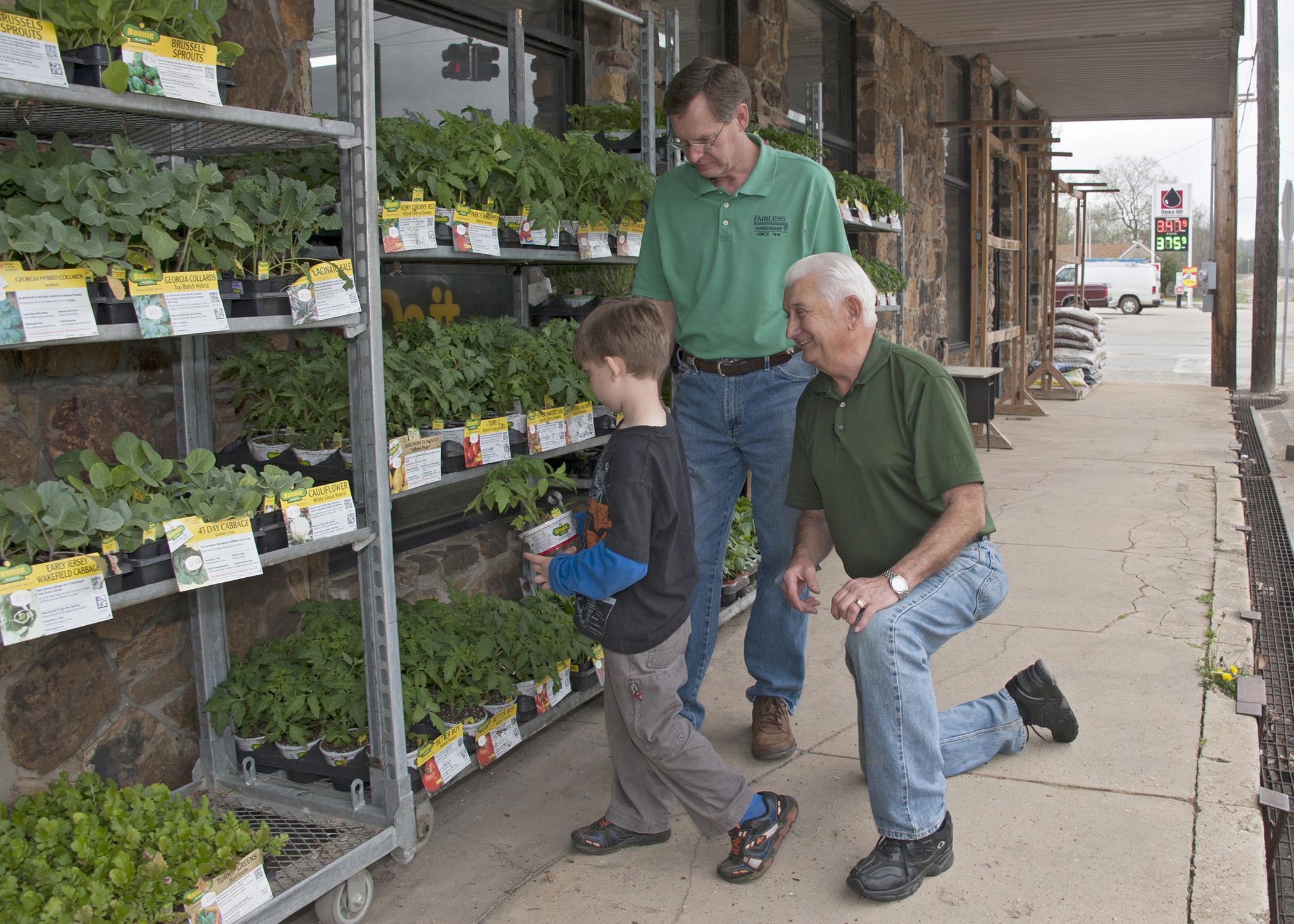Information Possibly Outdated
The information presented on this page was originally released on April 7, 2014. It may not be outdated, but please search our site for more current information. If you plan to quote or reference this information in a publication, please check with the Extension specialist or author before proceeding.
Master Gardeners see the fruits of their labor
MISSISSIPPI STATE -- Jerry Don Keith has been gardening for years, but he had the best garden he’s ever grown after he attended the Master Gardener training last spring.
“I knew I had a lot to learn, but I had no idea that the Master Gardeners would cover so much,” Keith said. “It’s not just about vegetable gardening, but trees, weeds, grass and soil. It’s learning what to do in gardens and yards. Sometimes the little things we learn are the most important.”
Keith said he has lived in Tishomingo all his life, except for one stint in Memphis. After he retired from the John Deere Company, he went through 40 hours of Master Gardener training provided by the Mississippi State University Extension Service.
“I learned why plants do what they do, as far as growing,” he said. “I learned about the diseases plants get and what to do about it, what will and won’t grow in our area, and the best species of plants to grow.”
He took his newfound knowledge and ran his 2013 garden like it was a scientific experiment. Under one row of tomatoes, he put a soaker hose. He left one row without.
“I could tell a difference in the yield, quality and disease presence,” he said. “I had learned that the biggest percentage of problems with tomatoes is lack of water and lack of calcium, which is moved up the plant by water. I had less end rot, better quality fruit and steadier production with the soaker hose.”
Keith also tried different corn varieties to please his grandsons, who love to eat it.
“I had a tremendous year. I am 6 feet 2 inches tall, and I had corn that was 12 feet tall,” he said. “Some plants had two ears of corn higher than my head.”
He also grew peas, beans, broccoli, cabbage, cauliflower, bell peppers, cantaloupe, watermelon and cucumbers.
This year, Keith is returning to the county Extension office to pick up pointers from the next round of classes and share his experiences with new participants. He also plans to develop a gardening program at a local school.
“I want to show them they can grow what they eat,” he said. “It’s hard to get kids to eat vegetables. We live in a fast-paced world, and it’s hard to get healthy food that’s fast. I want to do demonstrations and projects that fit in with the teachers’ lesson plans.
“I’m a firm believer we need to get our kids more involved in nature,” Keith said.
Lelia Kelly coordinates the statewide Master Gardener program for the MSU Extension Service. She organizes videoconference training classes for all interested counties.
“The Master Gardener program is a county-driven program,” Kelly said. “Some counties do their own face-to-face classes, some have multi-county efforts and others use the videoconference classes.”
Each county coordinator decides how best to meet local clients’ needs for scheduling the 40 hours of required classroom instruction. In addition to instructional time, participants must complete 40 hours of community service before becoming official Master Gardeners.
“Different people have different skills, so they work with their local Extension agent and Master Gardeners to figure out the best ways to give back to their communities,” Kelly said. “Some people are great speakers, some are good writers and others are good with kids. Other county groups have ongoing landscaping projects they work on together. They all serve as ambassadors for the program and for the Extension Service.”
To remain active, Master Gardener volunteers must donate 20 service hours and complete 12 continuing education hours annually.
In 2013, about 1,600 active Master Gardeners in Mississippi donated nearly 48,000 volunteer hours. That equates to nearly 23 full-time positions in the MSU Extension Service and a value of more than $1 million, Kelly said.
To learn more about the Master Gardener program contact your local Extension office.




